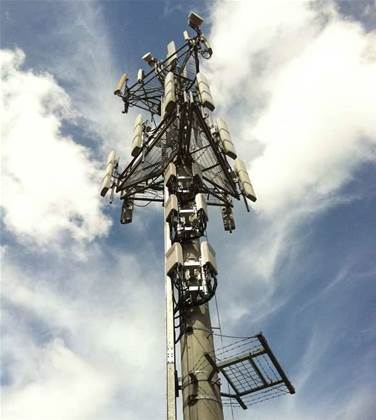The Federal Government has delayed the much-anticipated auction of digital television spectrum until April next year.

Despite continued assertions the radiofrequency lots would be sold off in November this year, communications minister Senator Stephen Conroy said the six-month delay was decided as a result of "expert advice" from auction operator, the Australian Communications and Media Authority (ACMA).
The new timeline, Conroy said, would "maximise product certainty for bidders prior to the auction and provide new licensees with adequate lead time to plan and deploy networks before their licenses commence".
The auction is expected to generate up to $4 billion for the Federal Government as it sells new 15-year licenses to spectrum freed from the switch to digital television.
The combination of 700 MHz and 2.5 GHz spectrum are considered "waterfront property" for 4G mobile broadband services and an essential step to each of the three major Australian telcos boosting their respective LTE networks.
However, the spectrum requires re-configuration, a process the media regulator said prevented the spectrum from being released more quickly than the January 1 2015 deadline currently set for the beginning of licenses.
The Government has provided $143.2 million over several years to television networks to speed up their transition away from the spectrum and has begun working on a final re-stack timetable with Broadcast Australia.
ACMA digital transition manager Jane Cole said the final timetable would be available to prospective spectrum bidders by November, providing the "best available information" on spectrum re-stack in time for the auction itself.
"The ACMA has always been on track to deliver on track by November 2012 and that has been our stated timetable for quite some time," Cole told iTnews.
"It's really important that before prospective bidders go in to commit large sums of money at an auction that they've got the best available information about what's being offered, when it's going to be available and when they can get in and start using it."
The new timing means telcos and other prospective bidders will begin applying to participate in the auction from late November this year, with reserve prices for the individual spectrum lots becoming available in February ahead of the April bidding process.
Participants will also take part in a voluntary mock auction before the final bids are required, but the media regulator has previously said this would not have any effect on final pricing.
The ACMA is yet to consult widely with bidders on the new timing. Telstra, Optus and Vodafone all welcomed the timetable when contacted by iTnews as providing additional certainty for planned mobile infrastructure investment.
Spokespeople for all three companies said they expected to use the radio frequencies for future 4G networks.
“Confirmation of the timing of the auction process gives us the certainty we have been seeking," said Matthew Lobb, general manager of public policy and industry strategy at Vodafone.
"This is good for competition and an important step forward that will greatly assist our network planning and investment forecasting requirements.”
However, significant information regarding the auction remains unclear.
Though slated for January 1, 2015, Optus and others have called for the regulator to grant early access to spectrum in regional Victoria and Canberra, where the digital television switchover has already occurred.
Cole said the regulator was yet to make a decision on the issue.
"We can, under some circumstances, give people early access and we're certainly looking at how we could do that," she said.



_(20).jpg&h=140&w=231&c=1&s=0)
_(23).jpg&h=140&w=231&c=1&s=0)
_(28).jpg&h=140&w=231&c=1&s=0)





 iTnews Executive Retreat - Security Leaders Edition
iTnews Executive Retreat - Security Leaders Edition
 iTnews Benchmark Awards 2026
iTnews Benchmark Awards 2026
 iTnews Cloud Covered Breakfast Summit
iTnews Cloud Covered Breakfast Summit
 The 2026 iAwards
The 2026 iAwards











_(1).jpg&h=140&w=231&c=1&s=0)



